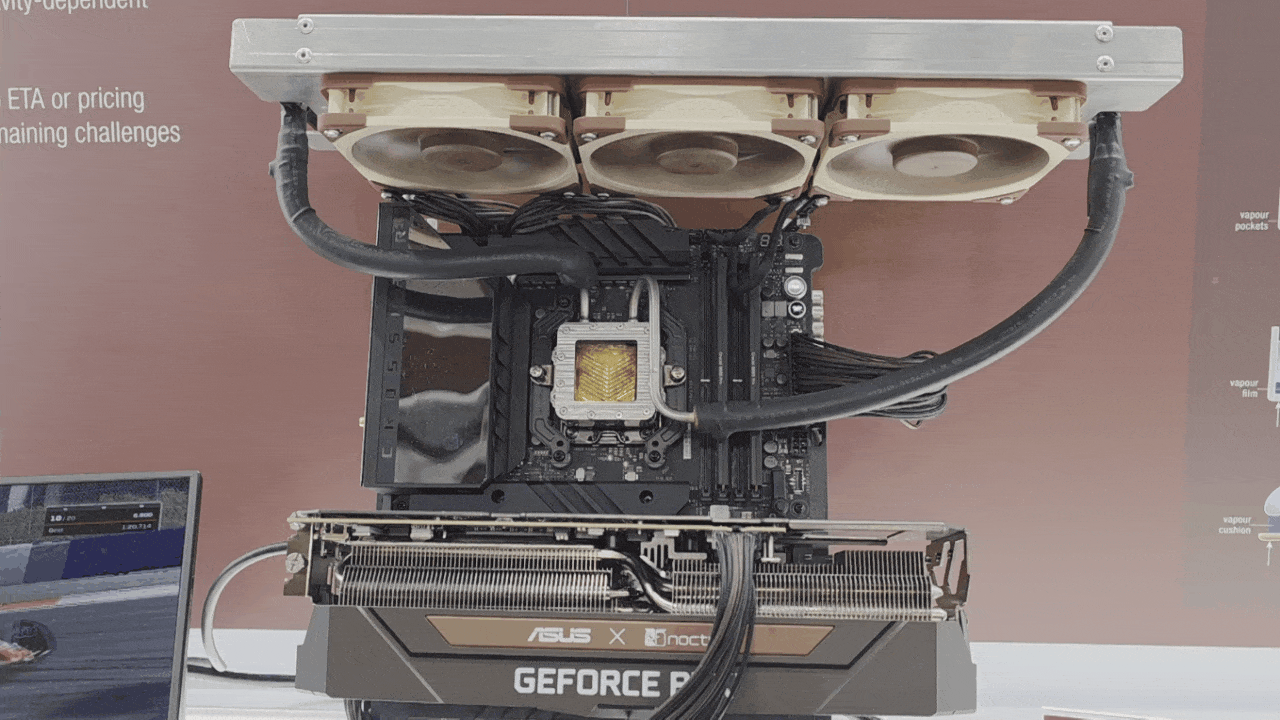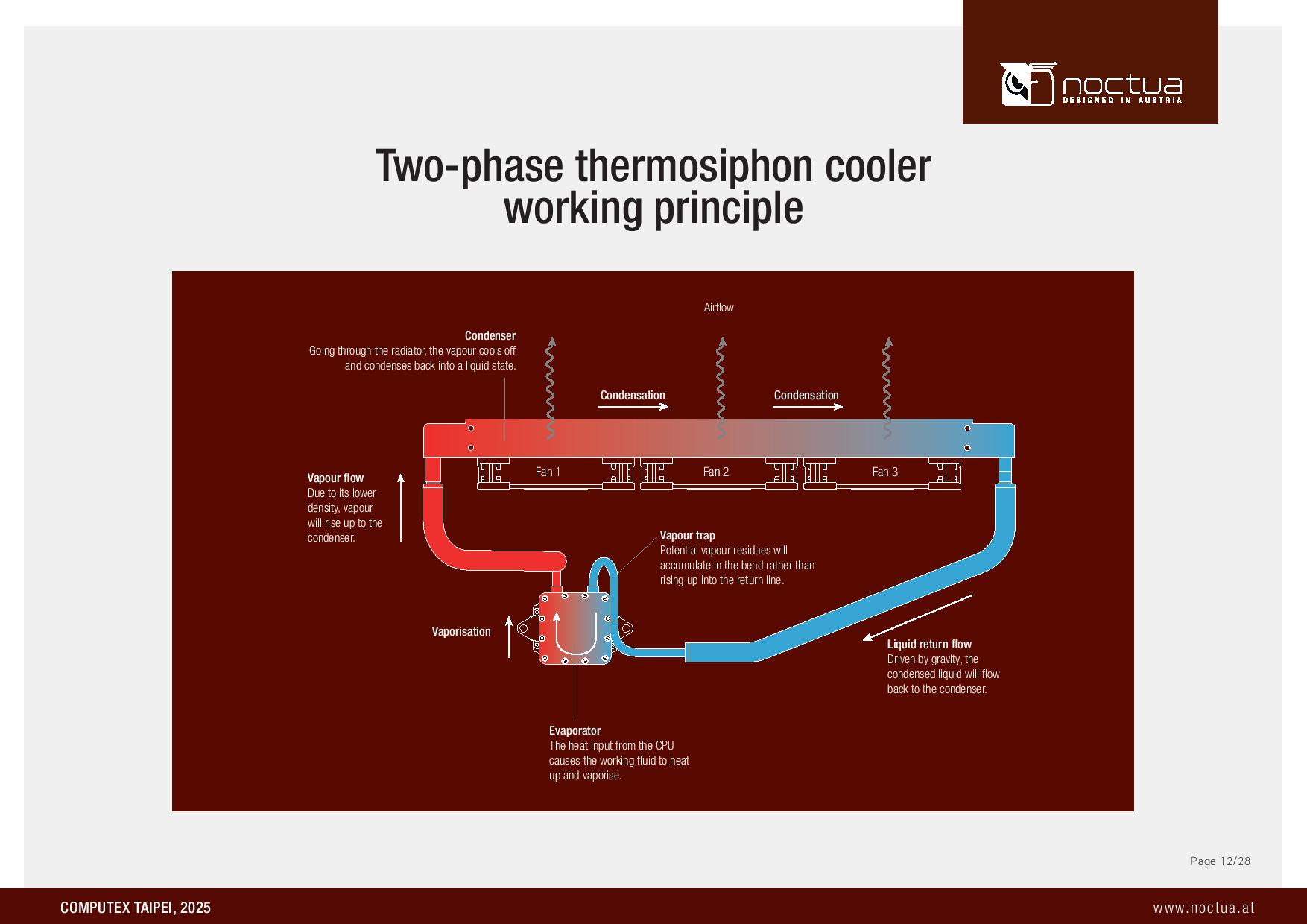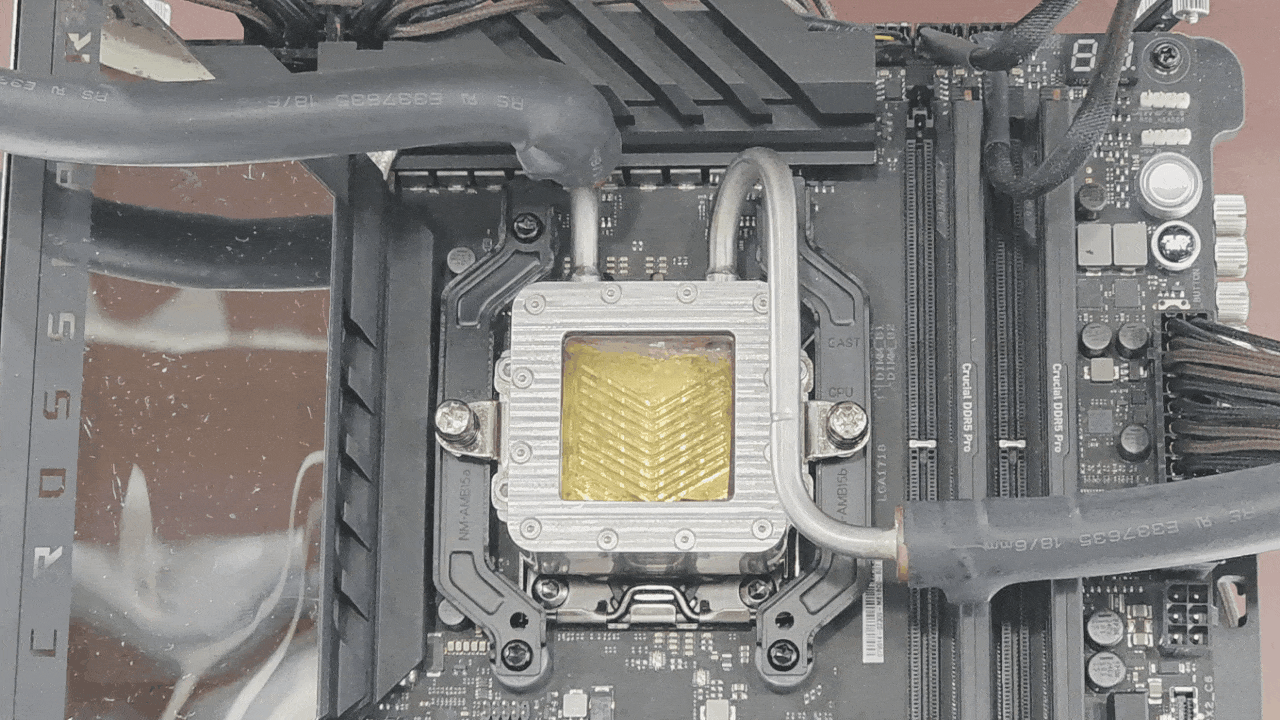Noctua's futuristic thermosiphon cooler is back and bigger than ever at Computex 2025, but still no closer to release
Now sporting a 360mm radiator

Noctua unveiled its pumpless thermosiphon CPU cooler project at Computex last year. Now, the company is back at the Taipei-based tradeshow, showcasing updates to the cooler prototype.
The science hasn't changed. The device is still using two-phase cooling that causes the liquid to boil and vaporize at the CPU heat spreader, go up to the radiator, and then condense back into cool liquid to start the process again.
This creates a cooling system with no moving parts or pump noise, except for the spinning fans.

The big difference now is that the condenser is a 360 mm radiator, rather than the 240 mm option we saw last year. The radiation has to be mounted in the top exhaust of a case, as it depends on gravity for the system to work properly.
The evaporator, which comes in contact with the CPU's heat spreader, has been further engineered to reduce hot spots and to guide condensed liquids back to the hottest parts of the CPU.
The system features flexible tubing, which the company says should allow for easy installation and "broad compatibility." Flexible tubing is already fairly common in off-the-shelf all-in-one coolers, though these certainly look a bit more rubberized than most.

Noctua describes this as a "long-term development project," so there's no word on pricing or when this will turn into a product you can actually buy for your PC.
Noctua is developing the cooler with Calyos, which makes two-phase cooling solutions for the aviation, automotive, and renewable energy industries.
Along with the thermosiphon update, Noctua also showed off its first all-in-one liquid coolers (set for Q1 2026), Noctua editions of the Asus GeForce RTX 5080 GPU and Antec Flux Pro case, and its newest CPU fans.
Follow Tom's Hardware on Google News to get our up-to-date news, analysis, and reviews in your feeds. Make sure to click the Follow button.
Get Tom's Hardware's best news and in-depth reviews, straight to your inbox.
Andrew E. Freedman is a senior editor at Tom's Hardware focusing on laptops, desktops and gaming. He also keeps up with the latest news. A lover of all things gaming and tech, his previous work has shown up in Tom's Guide, Laptop Mag, Kotaku, PCMag and Complex, among others. Follow him on Threads @FreedmanAE and BlueSky @andrewfreedman.net. You can send him tips on Signal: andrewfreedman.01
-
thestryker I'm curious if the rubberized tubing is actually rubber tubing or rubber over flexible metal. Everything I've seen like this that has either come to market or been shown in prototype/concept has used flexible metal tubing.Reply -
abufrejoval I am growing ever more astonished at this fixation on CPU cooling, when that's becoming less and less of an issue.Reply
With Rocket Lake long off the launchpad it's hard to see a reasonable CPU burn more than 100 Watts to make an RTX *90 sweat at proper resolutions and 4-8 times the heat output.
I love my Noctuas, mostly because they quietly prove that no water is required to keep things cool enough. -
Phatmista I'm more excited about the lack of a moving parts in a pump than noise; 90% of the liquid cooling solutions me and friends run have died from failed pumps.Reply
EDIT & ADD: I would also be curious to see what type of liquid is being used and how it would react to electronics if/when spilled/leaked and how it would affect human skin. -
abufrejoval I wonder if pump failure was cause or effect (leakage or blockage caused by chemical reactions).Reply
I'm inclined to think that managing the purely mechanical issues around the pump should be relatively easy, whilst the long-term chemical stuff is much harder to test in the short time engineers are given for validation.
I'm somewhat less concerned about direct health hazards, it's no longer freon cooling and I'm not into hugging my hardware (sorry, mostly fell for the cheap pleasure of sound of assimilation). -
Conor Stewart Reply
So all people use PCs for is graphics intensive games?abufrejoval said:I am growing ever more astonished at this fixation on CPU cooling, when that's becoming less and less of an issue.
With Rocket Lake long off the launchpad it's hard to see a reasonable CPU burn more than 100 Watts to make an RTX *90 sweat at proper resolutions and 4-8 times the heat output.
I love my Noctuas, mostly because they quietly prove that no water is required to keep things cool enough.
If that was all the CPU performance that was required then people wouldn't have CPUs as powerful as they do. There are plenty of CPU intensive games and people use PCs for plenty other things that require good CPU performance.
